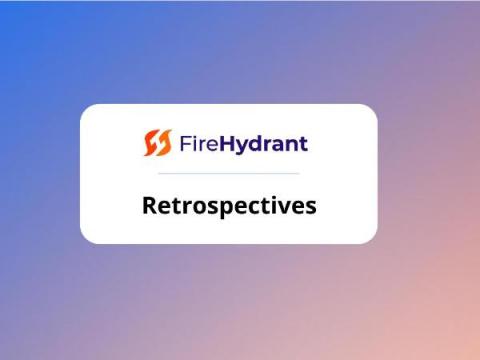Product update: ensure consistent data across all your retros with two new features
FireHydrant captures your incident, from declaration through remediation, and gives you a framework to run your retrospectives. But retrospectives are only as effective as their inputs. Now we're delivering a better way to learn from and analyze retrospectives by guaranteeing consistent, structured, and sufficient data from your team.










